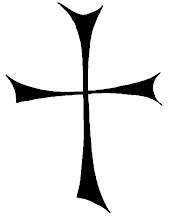The staff, also children of God: Rachel Davino, 29, Dawn Hochsprung, 47, Anne Marie Murphy, 52, Lauren Rousseau, 30, Mary Sherlach, 56, Victoria Soto, 27.
A mother, also a child of God: Nancy Lanza
Another child of God: Adam Lanza
Those were their names. Each one a bit anonymous to us, but oh, so alive and present to those who loved them.
As so many have noted, all of them with promise and life ahead of them. And not just the children: there were two fairly new teachers who lived for their days in their classrooms, and there was the school psychologist who had spent her whole life with kids and was planning to retire in a few years. Each one of them had a life still yet to live and it was taken from them.
And there is no sense in trying to dance on the head of a pin: their lives were taken by evil personified in one young man. We’ll never know why: was he sick, was he lonely, was he angry – all those answers to our anguished “Why’s” died with him, and with the mother he also killed.
The basic answer is some of our why’s is that we have free will. God made us that way – to make choices about how to live our lives. Some of us, unfortunately, due to mental illness, are unable to exercise free will as God meant it to be, I think. And some of us have chosen, yes, have chosen, to live comfortably with evil.
That is one of the paradoxes of Christian life I spoke about last week. That we are a people who live in paradox. And this week it was brought home to us: we try to be a people who live in the light, but there are some who live in the dark. And since we are a people called to be in the world but not of it, we do have to acknowledge the darkness in the midst of our light.
But we do not have to succumb to it. We can choose over and over again, to not spend our time cursing the evil or the darkness, but rather light candles to illuminate it with the light of Christ.
In another paradox, this is Gaudete Sunday, that of the pink candle. It takes its name from the Latin for Rejoice, the first word in the lesson from Paul’s letter to the Christians in Phillippi.
But how can we rejoice? I don’t; I don’t rejoice that Dylan and Avielle and Victoria are with God, and I doubt that their families do either.
And I really believe that God knows we have little to rejoice about this particular Gaudete Sunday. After all, on December 26 we remember the Holy Innocents, the little ones in Bethlehem who were slaughtered because Herod was paranoid and looking for Jesus. Jesus died for us, and that should be enough.
But it is not. Because evil still exists, and it will still exist, this side of the Kingdom. But it is also our responsibility and part of our baptismal covenant to resist evil wherever we find it.
And we may find it individually in the young man with a grudge. We can also find it corporately: the twenty little six and seven-year-old children will be remembered and become icons, while the 26-year-old killed in Norfolk will be a footnote in the newspaper. Any death should grieve us, any death should be an occasion for lighting candles in the darkness, but we all know that some lives have more importance than others.
I wish I had more words of comfort today. Like you, I am grieved, and I can barely read those names, much less say them, without wanting to weep.
But the refrain I keep coming back to is the first two lines of the lesson from Isaiah that we read this morning.
Surely it is God who saves me, I will trust in him and not be afraid.
For the Lord is my stronghold and my sure defense and he will be my Saviour.
There is a lovely setting for that Canticle which includes those lines as a refrain.
I would like to teach you that tune, that refrain, so that in the days and weeks to come, you can hum it to yourself, or sing it out loud, to remind yourself that God is still present with us, still grieves with us, and still works with us so that the light will overcome the darkness.
But let’s do this – let’s change that 1st person singular pronoun me to US. For God so loved the world that he gave his son for all of us – not just for one or two of us. For all of us, even the ones who live in the darkness. Jesus died so that we may continue to live and continue to hope – and continue to trust in God.
Surely it is God who saves us,
we will trust in him and not be afraid.
For the Lord is our stronghold and our sure defense
and he will be our Saviour.
(if you would like to hear the Canticle setting in its entirety, Google “Jack Noble White Song of Isaiah” You will find some wonderful choral performances on YouTube.)

